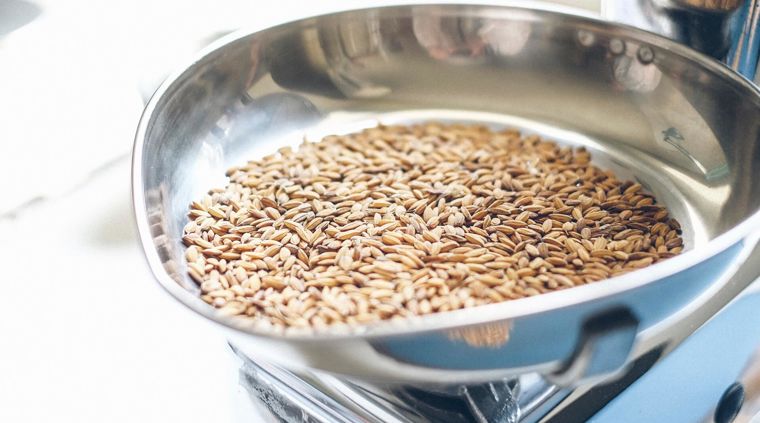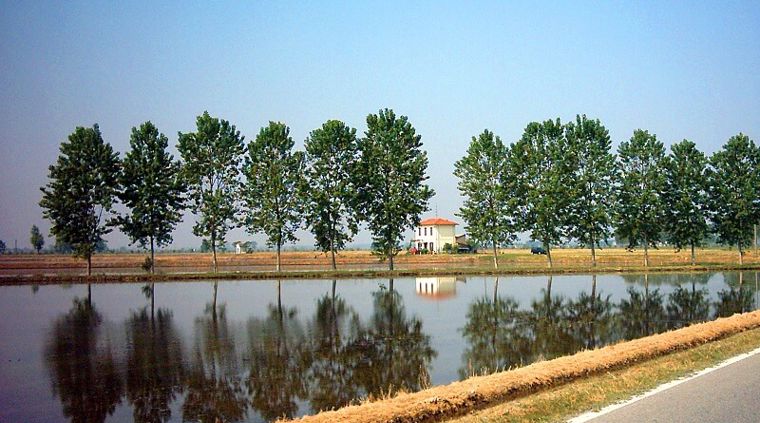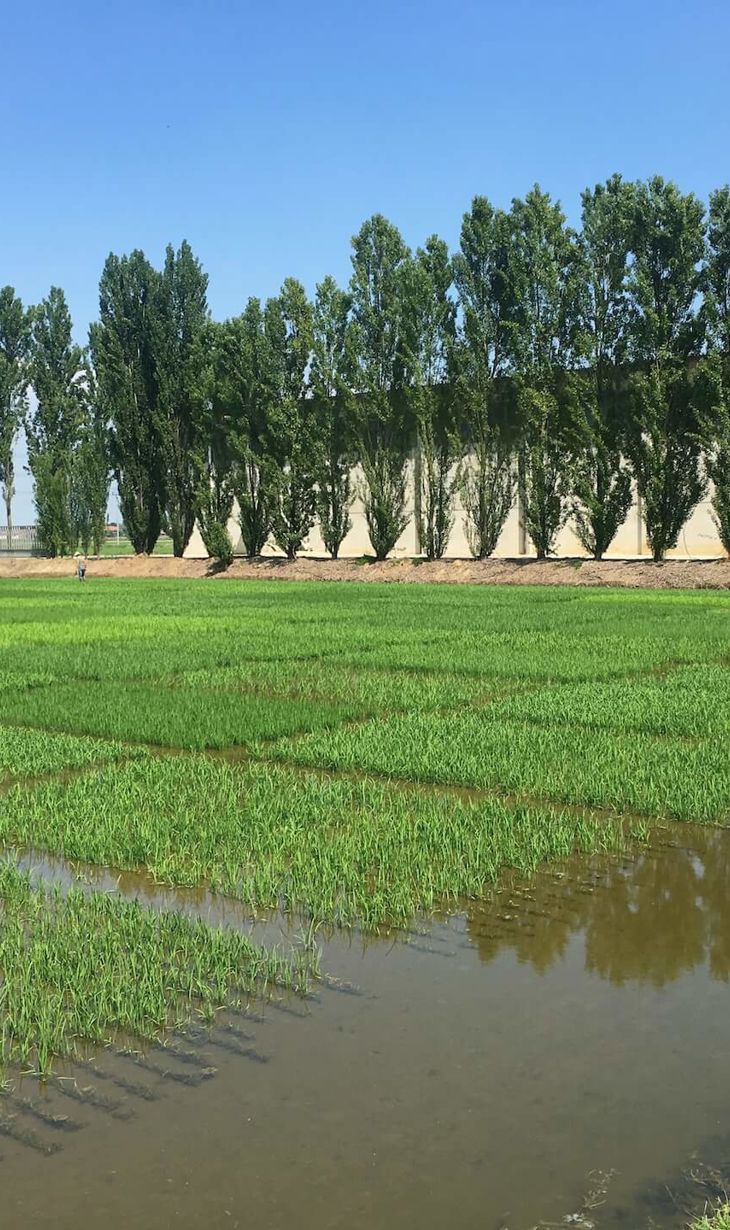Riso Gallo’s sustainably farmed rice is grown using less water to reduce its carbon impact and is now Levy’s ‘Rice of Choice’
Italy: land of pasta ... and paddy fields?
Not the first country that springs to mind when it comes to rice, but, in fact, the home of risotto is also Europe’s largest rice growing region.
Riso Gallo – Italy's oldest rice producer – is based in northern Italy. An independent family business since 1856, where “sustainability is a strategic choice,” according to its Managing Director, Riccardo Preve.
With its products including a range of sustainably certified rice, as verified by the FSA (Farm Sustainability Assessment of SAI Platform). Riso Gallo is now being rolled out across Levy as our ‘rice of choice’.
“If you want to do sustainability in rice, then you have to commit to agricultural sustainability, and this means the best use of water in the production so the impact on the environment is as low as possible,”
— Carlo Preve, CEO of Riso Gallo
This is exactly what Riso Gallo has done in Piedmont and Lombardy, where the grapes are grown for silky dark red Barolo wine and paddy fields abound.
The rice fields are fed by snow melt from the Italian alps plus rain which can be hard to come by – it is then drained from the fields around the end of June, halfway through the rice growing period. Riso Gallo have been running some trials on reducing the amount of water used (known as ‘droughtin’) to reduce emissions and thus benefit the environment.
After the water is released from the paddy fields it flows into the system of canals, into the Po River and onwards into the Adriatic. “Another recyclable element in the process, you might say,”
— Jason Morrison, Managing Director, at Gallo UK.
Crucially, it is this 7-10 day droughting period at middle of stem elongation rice stage and a reduction of water in the growing of Riso Gallo’s rice compared to traditional rice growing practices that has been shown to reduce its methane emissions by an average of 30 percent - and the rice’s carbon footprint by 20 percent according to research from University of Milan (source: UNIMI's BESTsomRICE project funded by Gal Lomellina).

Ban on Glyphosate
Riso Gallo works with a network of over 200 farmers, all of whom must follow Gallo’s Rice Charter.
These eight rules, designed to drive sustainable best practice, include a ban on glyphosates used directly on the crops and no use of sludge from wastewater purification in the rice fields.
Riso Gallo growers must also only use certified Italian seeds and provide complete traceability of their rice crop from cultivation to distribution and commit to preserving soil fertility, and train in agronomic practices to minimise environmental impact and promote biodiversity in their rice fields.
To this end, Riso Gallo follows a project to redevelop and manage marginal areas of rice fields through sowing a mix of flower species in favour of pollinating insects to support farmers to enhance biodiversity in their fields.

Everything is Reused
Sustainable best practice continues down the production chain too. “Everything at the mill is reused” says Carlo Preve.
Alongside the rice packaging which is recyclable, all by-products are reused at Riso Gallo’s rice mill, just south-west of Milan, which also runs 100% on renewable energy. Husks from the milling process are used in both animal bedding and have also been used in insulation for social housing in Milan. Even the water used in the parboiling of Riso Gallo’s black rice is reused via an innovative sustainability-focused partnership created in 2022 with Italian clothing company, Albini.
During the parboiling process (which reduces the cooking time for chefs) of the Black Wholegrain Sustainable rice, the water takes on some of the natural colour from the rice and results in a perfect natural dye. This is used by the Albini group in its ‘Off the Grain’ dyeing process which saves between 30 and 40 percent of water compared to traditional clothes dyeing.
Technology and innovation also play’s its part in sustainable farming through a dedicated digital platform (Gallo 4 Farmers) developed by Riso Gallo for farmers.
This supports precision farming technology, with a dedicated digital platform (Gallo 4 Farmers) which helps them monitor crop health, weather conditions and is being further developed to measure the impact of all the cultivation practices including paddy field submersion has on methane emissions.
Looking to the near future, Riso Gallo will plant to develop new varieties of rice, which has been developed to better response to climate changes.
“2022 saw the worst drought in 70 years in Northern Italy,” says Jason Morrison. “So, we have to innovate for climate change, as well as working to mitigate it.”
“Switching to using European rice is a huge step forward for Levy and a key part of our ambitious program of ingredient swaps which is a cornerstone of our sustainability strategy,” says Kevin Watson, Levy’s Sustainability Director.
Increased traceability of the product, and reduced water usage in Riso Gallo’s growing process is an important piece of the puzzle in reducing the carbon emissions from the food we serve”.
— Kevin Watson, Levy’s Sustainability Director.


